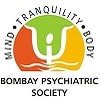drvikasdeshmukh@rediffmail.com

Exam stress is as common as the cold! Being stressed due to exams is not unusual at all, but problems arise when this stress is excessive.
Sources of exam stress can be many and you can manage your stress once you know the particular reason behind it. So to simplify things let’s look at the different ways of managing our stress as per the various reasons out of which it may arise.
1. Inadequate study planning
Adequate study planning will give you an exact idea of how much time you can allot to each subject, helping you make a proper time table. Even though you miss something on someday you know you have to catch up with it on the next day. Keep revision time aside while planning, Immediately after the topic as well as every day.
2. Study techniques
The following are some very important techniques for studying
- Active Recall: Most of the time we study and we revise but do it passively like with an open book. But active recall is like for example, preparing questions before reading topic using maybe last few years’ question papers, so that, while reading you will actively search for answers to those questions. In this method, your brain will attract information like a magnet as opposed to just plain reading.
- Writing notes with the book closed:
Try making notes with the book closed; this way your brain will actively attract important points and try to remember it.
Also, memory is a two-way process. The brain has different methods of encoding information and the retrieval of that information. While studying, many students focus on encoding and storing information but not much on how they will retrieve it. Many students complain that they don’t remember answers during examinations despite preparing them well. The above two techniques help with this.
- Flashcards:
Making flash cards of important and difficult topics using innovative methods like brain maps and diagrams will help you to remember things better
- Spaced revision:
Revising is the most important thing. We often undervalue this step. Say an ideal way to study a short topic could be: In a 60 minutes study period, assign 40 minutes to reading , 10 minutes for making notes, 5 minutes for vision, 5 minutes break time before picking up the next topic.
Research says that revising on Day 1, 3, 7 and 30 helps in converting short term memory to long term memory. So these are the best days to revise any said topic. It may sound very complicated to revise so many time but it’s not that difficult. One hardly needs 5 mins to a 40 minutes topic if you have studied using the above techniques.
3. Managing your own thoughts before or at the time of the exam:
Our own negative thoughts can increase our stress. For example, for an exam next day I may have covered almost 70% of the syllabus. For some reason, complete syllabus could not be covered, which is so often the case. If at that point I have thoughts like, “Most of the times I get asked questions from the syllabus I do not cover! I haven’t gone through 30% of syllabus. How am I going to pass?” These kinds of thoughts will make you more anxious and lead to over thinking which in turn will end up wasting your precious study time. During examinations, your focus would be more on the parts you left out and actively searching them you may think that the worse thing you predicted has actually happened! It makes even the things you know difficult for you to remember.
Instead, in this situation, if you think realistically or rationally, that although some parts were left out, I can adequately answer questions from the topics I have covered and will first focus on the things I know and attempt to answer other questions after I have finished those. This helps you remain calm and with a calmer mind, you can think more clearly and get more creative! Even the answers that you do not know adequately, you may end up writing something about it of you are calmer and have the ability to think straight.
Our minds have both positive and negative thoughts and that is normal. But with practice, we can choose what kind of thought could be the more dominant one. Try positive self-talk and practice to make positive thoughts like the above, more dominant.
4. Knowing your worth:
Exams are just a tool for your learning. Failure or success in exams doesn’t define your value. You are an invaluable human being whether you pass or fail your examinations. There are thousands of successful people around the world like Sachin Tendulkar or Thomas Edison who failed in their exams. Exams are small steps in learning which is really a lifelong process. Consider exams as ways to determine our areas of improvement. We should learn from both our failures as well as success, in fact, more so with failure! All the best!
Contact US
125, First floor, Arenja Arcade, Above Domino’s Pizza, Beside Kshirsagar Hotel, Sector 17, Vashi, Navi Mumbai Maharashtra – 400703.
call 9987 1281 48
Request AppointmentCopyright © All Rights Reserved, By Manovikas Clinic

